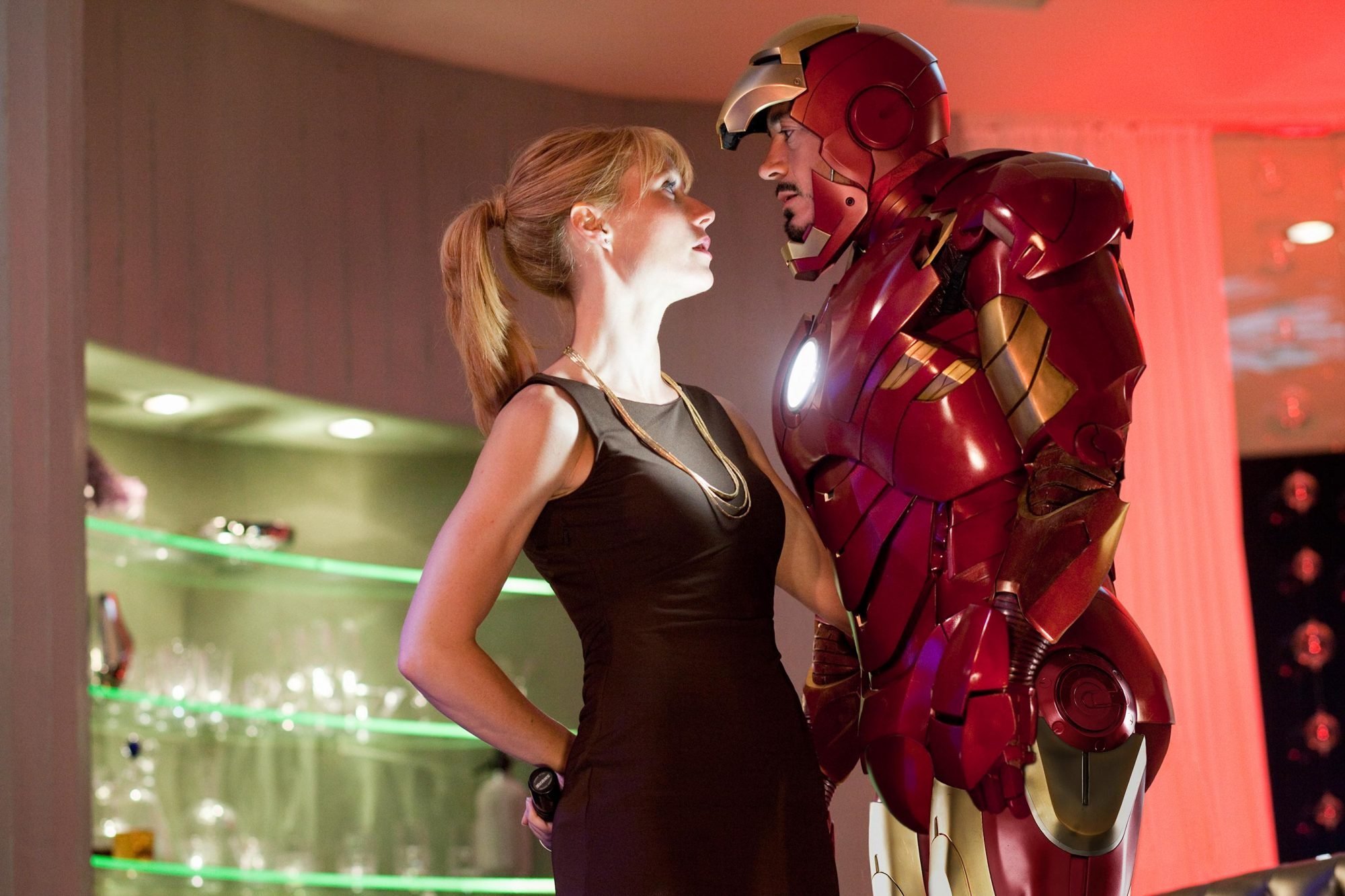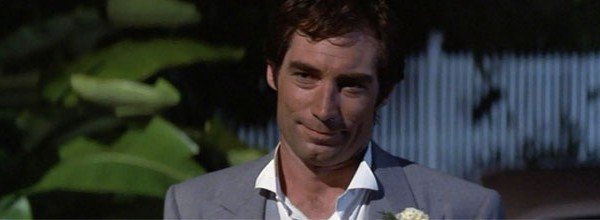A bachelor’s taste for freedom: an aromantic appreciation of 007
Bond isn’t the marrying kind, but is his devotion to the mission the only reason for his lack of long-term attachment? In her latest warm and witty piece, Fenna Geelhoed (our agent in Amsterdam) relates how Bond’s disinterest in romance helped her be okay with not feeling ‘normal’.
When I was eleven, it seemed like suddenly all of my friends had crushes. Some of them even had someone to ‘go steady’ with. And instead of spending our school breaks playing like we had before, they now just wanted to sit and talk about whoever it was that they ‘liked.’
I felt terribly left out. I’d never ‘liked’ anyone, not like that, and I didn’t understand what everyone kept going on about. But I desperately wanted to be included, so I used what I now know to be a classic lie: there was a boy, who my friends couldn’t possibly know because he went to a different school, that I fancied. His name was Paul (the first name that came to mind) and he was (I searched my brain for something, anything) into building go-karts.
I spent one blissful afternoon feeling like I belonged again, and then regret started setting in. All those questions about Paul that I couldn’t really answer, because he didn’t exist. All that remorse over deceiving my friends. I couldn’t handle it, so I stopped talking about Paul – but from time to time, my friends would still ask me how things were going and what kind of stuff we did when we hung out. I would shrug awkwardly and tell them how we kept playing with his go-kart, nothing more.
However, in retrospect, now that I’m thirty-seven, maybe it wasn’t just the guilt that kept me from making up stories about kisses. Maybe it wasn’t just a fear of follow-up questions that kept me from painting pictures of holding hands.
Perhaps, to me, driving fast vehicles simply seemed like something way more interesting to do.
***
In my previous article for Licence To Queer, I explored what little there was for me to relate to in the James Bond universe as someone on the asexual spectrum. Bond famously finds himself sexually attracted just about every fifteen minutes, and the few characters who don’t appear to experience such feelings are often portrayed as inhuman or villainous. But as time has gone on and I’ve started to realise that I also have a place on the aromantic spectrum, it has made me consider what it is that James Bond and I have in common.
At this point in my life I wouldn’t call myself fully aromantic and asexual (or ‘aroace’ for short). I’m probably best described as ‘demi on both counts,’ meaning both demiromantic and demisexual (in other words, about halfway down the spectrum). Because eventually, years after I turned eleven, I finally did experience what it was like to be romantically attracted to someone: getting butterflies in my stomach, wanting to kiss and cuddle and hold their hand while watching movies and taking moonlit walks and any of the other clichés. From there, moments started occurring where I could even see that person as ‘sexy’ and where I became curious about a kind of contact that involved us taking our clothes off. But all of those experiences have been incredibly rare for me, only occurring with a few people I was already quite familiar with, to whom I already related on an emotional level. Most of the time, romance and sex aren’t things I desire to have with another person. Finding a partner, for however long, is not the end-all, be-all goal that it is for many other people. My life isn’t incomplete without it. I’m single and that’s completely fine.
You could even say I have a bachelor’s taste for freedom… Sound familiar?
Now, hold up. James Bond, as discussed, is clearly not asexual. Nor do I think he is aromantic. Particularly in the books it always surprises me how quickly his inner thoughts turn to romance. In the novel Goldfinger (1959), Tilly Masterton has barely passed him by in her car and he starts daydreaming of taking her to all manner of luxurious dinners in picturesque places (and then, yes, sleeping with her).
But at the end of the day, as we see time and time again, Bond’s job always comes first. That is what I relate to in his character. “But James, I need you!” says the woman in the pre-title sequence of The Spy Who Loved Me (1977), as Bond turns to walk out the door of her cosy chalet with a roaring fireplace. He replies: “So does England,” and he’s off on his skis. Pursuing a goal other than a romantic relationship is more important to him. The same goes for me, even if my work doesn’t save the world half as much as Bond’s job does.
The mission coming first is not exclusive to James Bond, of course. It’s pretty much standard in any story about a hero, and maybe that’s why I love stories about other heroes too – I am also an avid follower of the Marvel Cinematic Universe, for instance. But those other hero stories often convey a tragic sense of sacrifice: the hero really wants to stay in the arms of their romantic partner, but alas, there is still evil in the world and someone has to go and fight it.
With Bond, I never feel like such a sacrifice exists. He doesn’t want a romantic relationship badly enough. Not even with Tracy, Vesper or Madeleine. Don’t get me wrong, I think he means it when he says he loves them and he’s going to quit the Secret Service to be with them. At least, he means it at the time. Or maybe he wants to mean it. Maybe he wants to be ‘normal,’ just like a small part of me still wants to be, so that I can fit in with the rest of society (as I did when I lied about Paul). But let’s be honest: as much as I genuinely swoon over Bond and Tracy, it wouldn’t have worked out, would it? If she hadn’t been killed and they’d bought that house on Acacia Avenue, Tunbridge Wells, it would only have been a matter of time before things would have gone sour. Bond would have gotten bored, he would have missed his old life too much. He himself is only too aware of this: at the end of the novel The Man With The Golden Gun (1965), Bond is written to know, “deep down, that love from Mary Goodnight, or from any other woman, was not enough for him.” He needs to pursue his true passion in life, and his true passion is not romantic love.
That can be difficult for others to comprehend. When the newlywed Mrs. Della Leiter throws Bond her garter in Licence To Kill (1989) and indicates he should be the next one to get married, Bond shakes his head and tells her “no.” Della doesn’t understand: “Did I say something wrong?” she asks her husband. “He was married once,” Felix Leiter explains, referring to Bond tying the knot with Tracy – and losing her in a hail of bullets hours later. The moment appears to suggest that trauma would be the only possible reason why a person wouldn’t want a romantic partner for life. Or does Felix yet allow for another option? When he adds: “but it was a long time ago,” perhaps he suspects Bond has also learned something about himself since then: marriage doesn’t suit him.
Whatever the case, I relate to Bond smiling politely at Della and telling her ‘thanks’ for the gesture. She means well, just like some people in my life who have expressed concern: aren’t I lonely? Don’t I want someone to grow old with?
The answer is no on both counts. It’s not that other people aren’t important to me, that I’m a complete recluse. I would be nowhere without my friends, just like James Bond (who would have literally been dead ages ago if it hadn’t been for his allies). I need friends, and I love them fiercely. If any of them was ever fed to a shark I could totally see myself going on a reckless mission of revenge, just like James Bond (proving just how strong platonic love can be!). But a romantic relationship? It truly doesn’t matter if I have one or I don’t.
James Bond makes me feel like that’s okay. He leads a fulfilling life even when he’s single. Ultimately, I think his true passion isn’t necessarily his job, but he lives to have a good adventure and his job is always sure to bring him that (if it also helps save the world then that only makes the challenge more worthwhile). Still, he can be just as happy without the job as long as his needs are met. I was quite pleased to witness Bond’s retirement in No Time To Die (2021). It didn’t look depressing and self-destructive like his time ‘enjoying death’ in Skyfall (2012), where he was drinking himself silly and facing off with scorpions every night. He was taking care of himself while still guided by his lust for adventure, fishing on his sailing boat off the Jamaican coast. He seemed at peace, even though later on in the film he expresses regret at having broken up with Madeleine.
But what exactly does he regret, I wonder: not being with her? Or breaking her heart? My gut leans towards the latter. Which is another reason Bond’s death at the end of the film left me cold – I simply didn’t buy that he really wanted to spend the rest of his life making a stable home with his family, so to me it wasn’t sad that he didn’t get to have that future. It’s the same feeling I get when I watch him lay flowers at Tracy’s grave in For Your Eyes Only (1981): I think he does it more out of guilt for getting her killed, rather than because he’s mourning the life he would have had with her.
And that doesn’t make him a cold bastard (you can save that term for some other aspects of James Bond). It doesn’t mean he didn’t care for these women. It’s just being honest about who he is.
***
On the night of my twelfth birthday party, my friends found out the truth when they mixed with my family and learned my family had never even heard of someone named Paul. For fifteen minutes, it felt like my world was ending (as I said, I would be nowhere without my friends). Then everyone got over it. A weight lifted off my shoulders. Another weight lifted off my shoulders when I finally experienced romantic attraction and grew hopeful that there wasn’t ‘something wrong with me’, as I had previously thought. But the biggest weight I shrugged off in my late twenties, when I made peace with the fact that I’m different – it doesn’t mean anything bad.
If I die alone on a poisonous island, there won’t have to be anything tragic about it at all.
Fenna Geelhoed is a former writer of James Bond fan fiction and librarian. She lives in Amsterdam, The Netherlands.









